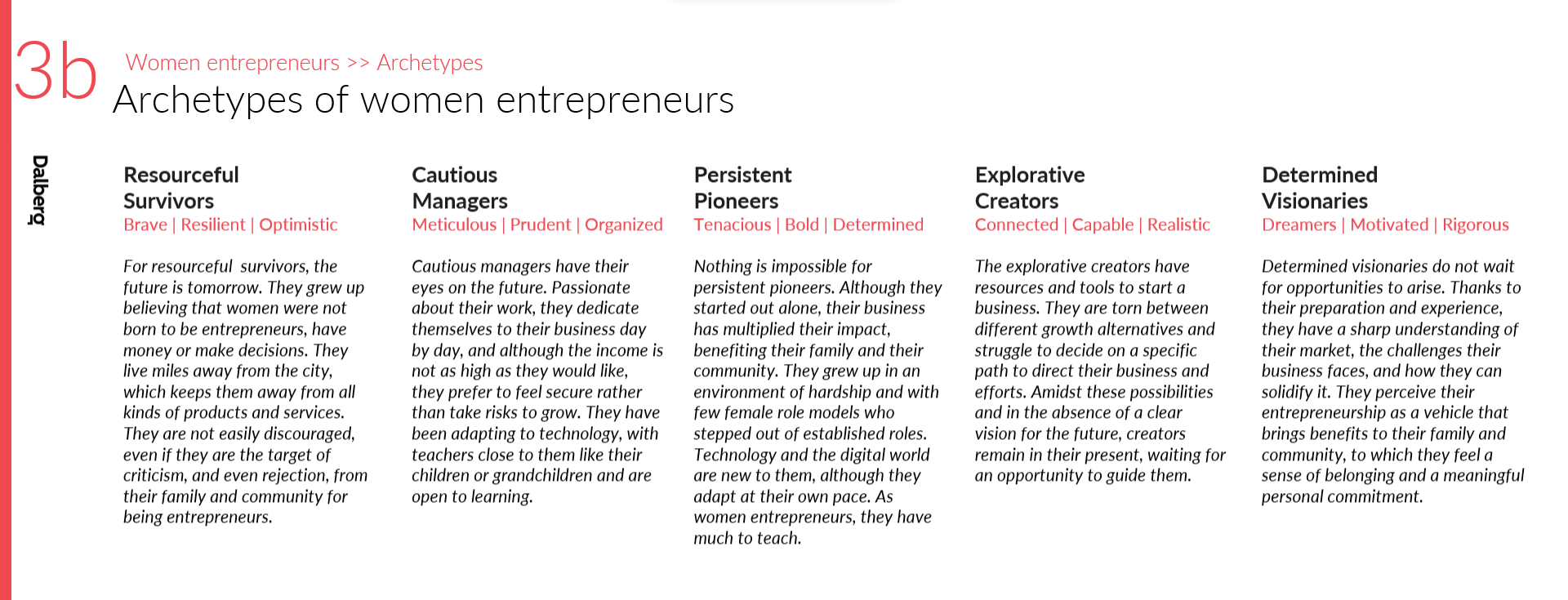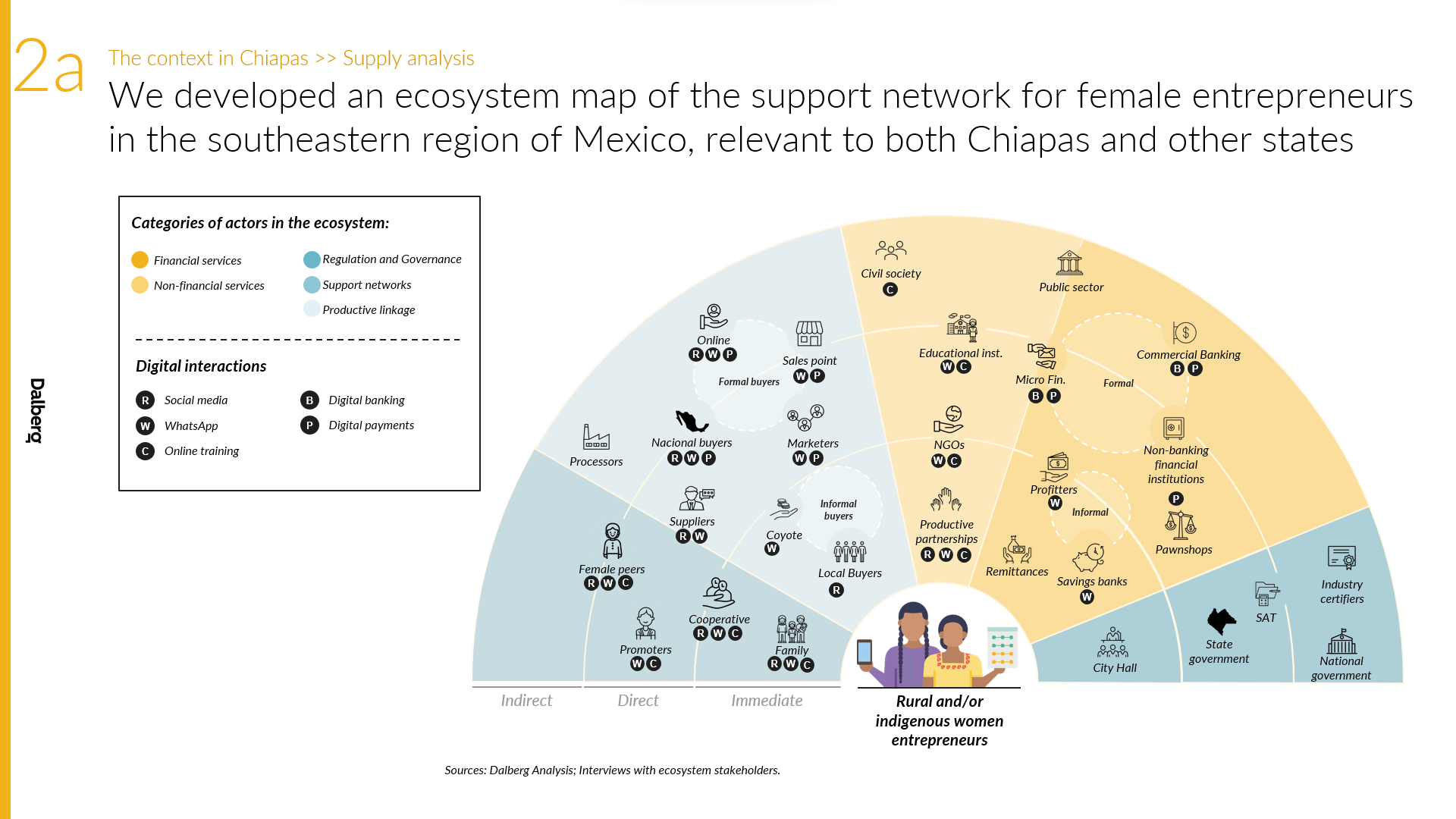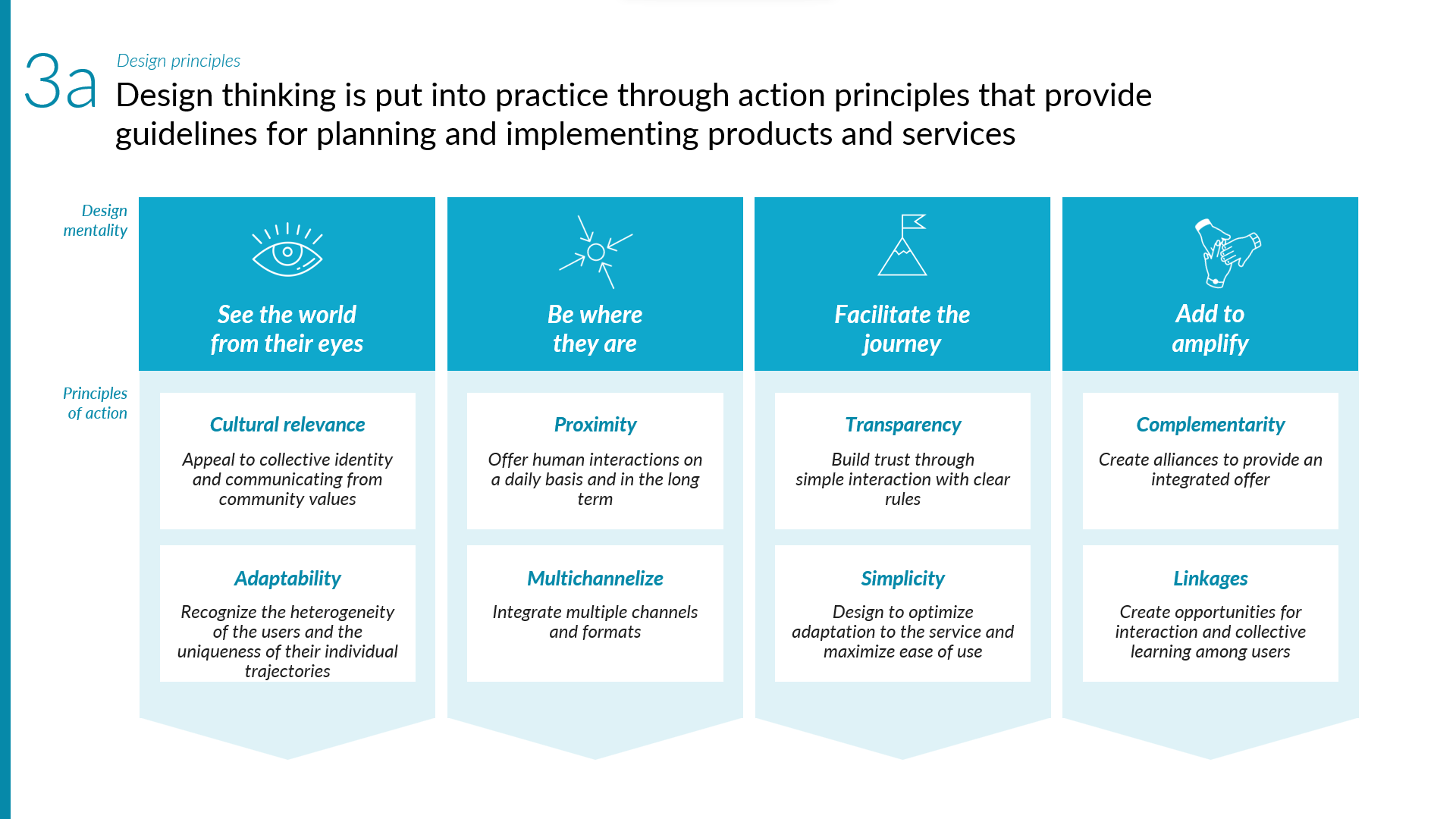Dalberg uses cookies and related technologies to improve the way the site functions. A cookie is a text file that is stored on your device. We use these text files for functionality such as to analyze our traffic or to personalize content. You can easily control how we use cookies on your device by adjusting the settings below, and you may also change those settings at any time by visiting our privacy policy page.
The South-East of Mexico is known for its remarkable cultural and biological diversity. However, it faces a paradoxical situation as one of the most challenged areas in the country, lagging in economic, educational, and health indicators. The disconnect between this immense natural and cultural wealth and the prevalence of poverty underscores the complex dynamics at play.
Home to the country’s largest number of indigenous populations, Mexico’s South-East has historically experienced marginalization, racial discrimination, and heightened gender inequality. Amid adversity, many indigenous and rural women in the region have turned into successful entrepreneurs to support their families and communities. However, these women often face barriers that disable them from accessing formal finance to support and grow their businesses.
“We live in communities where it is not well seen for us to go out and work…many of the colleagues who have been left behind do not have that family support…they are scolded and even beaten…”
– Female Artisan in Chiapas, Mexico
In 2019, Dalberg signed the “Neutral is Not Enough” pledge, committing to applying a gender lens as standard practice across all its projects.
The Dalberg team worked closely with Pro Mujer, a leading nonprofit development organization that provides financial inclusion, health, and education programs to low-income women in Latin America. We conducted a foundational study on the livelihoods of rural and indigenous female entrepreneurs in Mexico’s South-East to inform and support the organization’s expansion to the region. The article below is based on a body of work encompassing five states in Mexico. We worked with Pro Mujer, with funding provided by the W.K. Kellogg Foundation and Google, across several projects
Using Human-Centered Design (HCD) tools, the Dalberg team learned the perspectives of different actors in the region, both women entrepreneurs, and the local service providers they might interact with. This research allowed us to delve into household finances, the experience of entrepreneurship, the challenges of running a business in rural areas, and the future aspirations of fifty women entrepreneurs. Using a set of segmentation variables, we developed archetypes to differentiate the distinct types of women entrepreneurs in the region and their specific financial and non-financial needs.

We then did a complementary quantitative and desk research study to understand the demographic, economic, and infrastructure differences between five states in the South-East. Through this analysis, we were also able to gain a clearer picture of the financial and non-financial products and services offered in each state, which allowed us to identify gaps and opportunities for Pro Mujer to serve these markets successfully. Dalberg developed detailed state characterizations and ecosystem maps of the existing financial and non-financial products and services offered by state.

After gaining a deeper understanding of Mexico’s South-East states and the women entrepreneurs in them, we identified and analyzed Pro Mujer’s potential focus market. The Dalberg team developed design principles and recommendations to consider when creating financial and non-financial products for rural and indigenous women entrepreneurs in the South-East region. Additionally, we provided considerations for the implementation of these recommendations which are expected to benefit more than 10,000 women entrepreneurs in the region.

Women in the South-East region of Mexico have long been the driving force behind their families’ well-being as well as the betterment of living standards for their communities. To empower indigenous and rural women through better pathways to economic independence and entrepreneurship, is to promote equitable and inclusive economic growth in Mexico’s South-East and offer much-needed opportunities to vulnerable communities.
Learn more by downloading this report.

